In this episode of I am BIO, we have two powerful stories. Each one is as different as the disease that it’s about. Yet there is a common thread: patients want and need to be heard. You will hear from a mom who will do whatever it takes to save her son’s life. And you will learn about a young woman who is fighting for herself and her underserved patient community. Guests: Amber Freed, SLC6A1 Connect, and Melodie Blackwell, Color of Crohn's & Chronic Illness (COCCI).
Dr. Michelle M. (00:05):
Today, we have two powerful stories for you. These are patient stories. Each one is as different as the disease that it's about. Yet, there's a common thread. Patients want and need to be heard. You'll hear from a mom who will do whatever it takes to save her son's life. And you'll hear about a young woman who's fighting for herself and her underserved patient community. I'm Dr. Michelle McMurry-Heath, and you are listening to I am BIO.
Amber Freed (00:36):
My name is Amber Freed, and I founded SLC6A1 Connect, also known as Milestones For Maxwell. I started Milestones For Maxwell out of necessity. Shortly after I had twins in March 2017, I noticed that Maxwell was not progressing like his twin sister, Riley. He had some really strange movements, didn't seem interested in the world around him, and he was floppy. I went from doctor to doctor showing them this strange set of symptoms. And it was finally the ophthalmologist that looked at Maxwell and said, "Well, I can tell you that his eyes are fine, but I don't think he's going to live."
Amber Freed (01:47):
I was so taken back because you're not emotionally prepared to hear that kind of news from an eye doctor, maybe an oncologist or a neurologist, but not the eye doctor. And so, I calmed myself down and said, "Why do you think that?" And he said, "Your story is like so many others. Parents come in thinking something is wrong with their baby's eyes, but it's actually their brain. And it's going to be a rare disease. There are 7,000 rare diseases. 50% of all rare diseases affect children, and only 30% live to see their fifth birthday. Be prepared that Maxwell won't live."
Dr. Michelle M. (02:36):
Amber refused to accept that prognosis. She began her own research, her own desperate search for answers.
Amber Freed (02:48):
We went to see a geneticist, which was even more annoying because I went through two years of IVF to have twins, and my husband and I aren't carriers of anything. After genetic testing, we found out that Maxwell had a mutation on the gene SLC6A1. It didn't come from my husband or I, it just happened. He had a one in 38,000 chance to get this mutation, and he was the 34th person in the world to be diagnosed.
Amber Freed (03:28):
Doctors told us nothing could or would ever be done because it's a rare disease, and rare diseases are too rare to care. I was so annoyed that the doctors couldn't tell me anything about the disease, like, why didn't it even have a name? I took out my phone and Googled it. And I think this comment will resonate with everyone listening, but after a Google search, it said, "No results found." Imagine receiving a devastating diagnosis for your child, and there's no results on Google, nothing at all. And so, I just realized, during that moment, that if anything was ever going to be done, it was going to have to be me.
Amber Freed (04:28):
I quit my career as an equity analyst the same day, and I read textbooks. In fact, I started reading Bioinformatics For Dummies, Genetics for Dummies, until I got a good grasp of the science, or at least understood the vernacular, and then I started calling scientists. I called about 300 in the first month so that I could understand the disease, understand the transporter, but more importantly, understand who could help my son. It was exhausting, and took a lot of courage to pick up the phone for some Nobel-winning scientist, and curving out a section on their calendar for me and Maxwell. And of course, I founded my nonprofit, which is dedicated to curing children with this disease. And every single penny goes straight to research.
Dr. Michelle M. (05:42):
It has been over four and a half years since the doctor's appointment that changed the Freeds' whole world. As a mother myself, I can only imagine what it was like to receive that news, how daunting and impossible the odds must have seemed. Amber has made tremendous progress in that time, even learning that a gene therapy could possibly transform Maxwell's life.
Amber Freed (06:07):
For everybody listening, for Maxwell's disease, SLC6A1, only half of the gene isn't working for him. And because of that, he has a really severe neurological disease, but the technology exists today to replace that gene in his body. And it's super simple. I love talking about the science. You take a working copy of the gene that most people in this world have, you put that gene into a virus that doesn't make humans sick, and it is delivered through the spinal fluid. This is a smart virus that goes straight into the brain, and it looks for bad copies of the cell that are missing, SLC6A1, and it stacks good working copies on top of those bad copies. The best analogy is, if this were a clogged pipe, it would immediately unclog the pipe. And it's a once-and-done treatment for the rest of your life, because like so many vaccines, if you get a vaccine the second time, you already have immunity, so it's not going to work. Your body won't accept the virus. What we've undertaken is incredibly expensive. To host a phase one clinical trial, we need to raise $4 million.
Dr. Michelle M. (07:46):
As we've discussed on this podcast before, it takes significant investment, resources, and time to take a therapy from concept to commercialization. This is especially true when we talk about a rare disease.
Amber Freed (08:01):
One, it is true that rare diseases are too rare to care. Really, the only person that cares are affected children's mothers. And secondly, this is new technology, so the cost is exorbitant today, but like with any new technology, it will really reduce over time.
Dr. Michelle M. (08:25):
Amber has managed to raise $3 million through a GoFundMe campaign to support research for this promising gene therapy. Now, she says she needs another million to move the therapy into clinical trials.
Amber Freed (08:39):
I have raised all of the money to fund preclinical development of this gene therapy. And now, we're raising money to host a phase one clinical trial. That means actually dosing four or five patients in an academic setting. And what we're striving to happen is to sponsor this small trial so that we're able to hand off all of the research and what we've done to a larger biotech that can get this drug fully FDA approved with all of the data we planned, we paid to collect, and then this treatment will be available to everyone. We only need 1 million more to make the drug and actually dose children. We've done everything. In fact, our goal is to raise the next million by the end of the year and hoping that there is some type of Christmas miracle.
Maxwell (09:54):
I love you. I love you.
Amber Freed (09:55):
I love you.
Maxwell (09:55):
I love you.
Amber Freed (09:58):
He is such a love. He is a flirt. He loves nothing more than to bat his eyelashes at whoever is giving him attention. He loves to clap and hug, and he is just enamored with his twin sister, Riley. Maxwell has a few words, and it's not uncommon for her to leave his eyesight and have him yell, "Riley, Riley, come, come." Because he's so upset whenever she's not around. And Riley loves him and she calls him her best friend.
Dr. Michelle M. (11:01):
Amber may have started her a nonprofit SLC6A1 Connect because of Maxwell, but that's not all she's in this for. She knows the potential repercussions of her work.
Amber Freed (11:13):
My biggest hope for other parents dealing with a similar situation, but also for everybody to come after us. I'm so dedicated to knowing that there will never be another Maxwell Freed. There will never be another Freed family that is told nothing can be done, to just go home and give him the best life possible. What I'm trying to do is not only help my family, but also create a playbook for everyone to come after me, so that nobody can ever go through this again. It has been the largest heartache of my life. I think we can all think back to your worst moment in life and take that moment. I mean, I certainly believed I had had one before I had kids, but I can just say there's not a darker place than to sit in a cold, sterile diagnostic room, looking at your 18 month old baby and having the doctor say his life is over before it even began.
Dr. Michelle M. (12:40):
We asked Amber why patient voices like hers are so important to drug development.
Amber Freed (12:46):
The patient voice in drug development actually is the most important voice of all. It's the people who live with a disease day in and day out that hold that expertise. So, as an example, I spend a lot of time thinking about clinical endpoints and biomarkers. I believe it's the role of the nonprofit to educate others about the disease, but also to provide information. So a couple of ways that I'm helping some of our partners advance treatments, we have a natural history study. I own that data. I make that data available to anybody that wants it quarterly. We have patient workshops all of the time. I help develop endpoints myself. And for our condition, seizures are a very, very large problem.
Amber Freed (13:53):
Most people want to measure seizure reduction and I can see why. They're very, very measurable, but the biggest problem for our community is actually sleeping habits and behavior. It's very, very easy for us to notice a change in our family behavior, because it's nearly impossible for us to leave the house or have a normal family experience. So what we've done is really dig into developmental testing, parent questionnaires, the habits of daily living to judge how well a therapy is working.
Amber Freed (14:41):
And the other thing, parents can't read EEGs. They don't necessarily fully understand the difference between an atonic, myotonic, absent, but we do know something's wrong and we're good at using our clicker every single time. Something's wrong. Maybe we can't name it, but we definitely know if something is happening that shouldn't be happening.
Dr. Michelle M. (15:10):
Amber has some advice for patients and advocates.
Amber Freed (15:17):
I think most importantly, you are your best advocate. Nobody is ever going to understand the disease more than you. And don't be afraid. Pick up the phone. You have nothing to lose. You only have something to gain. Start a nonprofit, get dialed in with the National Organization of Rare Diseases and Global Genes. Find centers of excellence of doctors that truly care about your disease. Start a Facebook support group to find other families. And for me, I was able to identify a way to actually cure this disease. And the path forward for people listening may not be as clear, but it's equally important to get the right people, the right scientists involved in your cause. So I can just give an overview of what I've done, but I founded my nonprofit. I unified families. I formed a medical advisory board. I've relied on them so much as I navigate this super complex system.
Amber Freed (16:43):
And I started fundraising. For a lot of people listening, that sounds impossible. Like a million dollars is a lot. What about three or four? And to do that, I've had to make my family extremely public. You're never going to raise that type of money starting with a Facebook birthday fundraiser. You really need to get your story out there. And I think rare diseases are in a similar spot today as HIV Aids were in the 80s and 90s. Right now, a lot of people have the attitude that could never happen to me. And that's not true. Rare diseases affect one in 10 Americans. You will be impacted by a rare disease sooner or later. New diseases are being found every single day. We need more buy-in. We need a shorter regulatory path. We need more resources through the NIH, through the FDA, through nearly every entity, because this many kids don't need to be dying. So many children are dying every single day, just waiting for a therapy. The rare disease community can't walk on Washington. We can't mobilize and form a parade in San Francisco, because we are moms taking care of dying kids. We can't march with wheelchairs and oxygen and nurses. We just can't do that, and so it's finding a different way to advocate. And that has been a secondary mission of mine, is to find the media outlets that can tell this raw, unedited story of what we're going through.
Dr. Michelle M. (18:52):
Advocacy comes in many shapes and sizes. When we come back, we'll talk to a woman who herself is a patient. She tells us what it's like to feel alone, despite having a well-known disease, because of a healthcare system that often overlooks or dismisses people of color. This is the 65th episode of I am BIO. Have you been enjoying it so far? Please take a moment today to rate us, and better yet, write a review on your favorite app. Share this podcast with someone to educate or inspire. All of this helps us reach a wider audience to share the good news about biotech breakthroughs.
Melodie Narain-Blackwell (19:47):
My journey with my healthcare has been really interesting, because I believe that I should have been diagnosed over 20 years ago, and it was not until my disease presented to me in a very severe manner. I was bleeding for over four months. I had recurring abscesses. I had surgery. I had eight fistula. I lost hair. I had chronic eye infections. I had mouth ulcers. I had 64 ounces plus of fluid on my knee. I had swelling all over my feet, and I lost my mobility. That was when I actually finally got to a space of, "Hey, you probably have Crohn's disease." It should have never taken anyone that that long.
Dr. Michelle M. (20:25):
Crohn's is an autoimmune disease characterized by long-term gastrointestinal inflammation. It is sometimes referred to as IBD, which stands for inflammatory bowel disease. It does not qualify as a rare disease, yet Melodie felt totally alone when she first learned she had it.
Melodie Narain-Blackwell (20:45):
Hello. My name is Melodie Narain-Blackwell, and I am the president and founder of Color of Crohn's & Chronic Illness. When I was 13 years old and I had a flexible sigmoidoscopy, and at that time I had been bleeding for months, and a doctor said I had internal hemorrhoids... Not factoring the fact that I had been having stomach aches since I was six years old, and I would sleep in a bathtub at night, at least two or three times a week, from having pain and my body feeling extremely hot. I knew when I really did get to this diagnose 20 plus years later that being quiet wasn't an option. Color of Crohn's & Chronic Illness, which we affectionately call COCCI, was a product of my own inequities. I started this organization after I shared my story on my social media platforms. And when I shared it, so many people gravitated to my story, and they started messaging me. And they would share that they thought they were the first or the only Black or Brown person with this disease, that they were told that other Black or Brown people didn't get these diseases. And they were looking for support, or a community and someone to talk to. I really wasn't aware of that until it was brought to me. And I said, "Oh, maybe I need community too." So I listened to their stories, and I took a moment. I took a beat to actually look around and say, "There's no way that this could be true, not in 2018. There's no way that this could be valid."
Melodie Narain-Blackwell (22:18):
And when I saw that they were right that there weren't any materials that were for education for Black and Brown communities, no support groups, no one focused on this community, no providers speaking of this, it was shocking and eye-opening. From there, I created the Facebook group, and an organization was birthed out of that. This organization was really created out of a necessity. I just felt like if I didn't do it, then who?
Dr. Michelle M. (22:56):
Why did this community of Black Crohn's sufferers feel so alone, when the disease is well-known in the medical community?
Melodie Narain-Blackwell (23:04):
More often and extremely common, the disparity in the space of Crohn's and ulcerative colitis for people of color is that they're not diagnosed. They're not factored into the disease until their disease is at very moderate to severe states. And that presents a much more complicated disease. And usually when they're diagnosed at these moderate, severe states, they're not even offered a drug that could actually help them have a better quality of life, manage the disease at that state because of things like step therapy. So the inequity really does start at the beginning. That's where the gap is. We need to be factored into the disease so that we can get to diagnosis.
Dr. Michelle M. (23:46):
Black patients tend to be underdiagnosed and undertreated when it comes to illnesses where their primary symptom is pain. A study published by the University of Virginia found that many White medical professionals actually believe Black people experience less pain. Author Sophie Trawalter, associate professor of public policy and psychology, noted, and I quote, "Even participants who have very positive racial attitudes show this bias," end quote. Black patients also deal with stereotypes that lead them to be undertreated. Some doctors believe they're just trying to get drugs to use or sell. This leads to patients not getting the care they need when they need it. However, advocacy groups like Melodie's are pushing to change this mindset.
Melodie Narain-Blackwell (24:36):
When I was met with these other challenges from other people in our community, I felt on fire. And then when I knew that my voice really mattered in this disease because there wasn't enough there, I felt ready, and I did what I knew I could do. And I created something that I knew would be unstoppable. Because when you see that these community members are suffering, and no one's taking the opportunity to hear what they're saying, you don't have any other way to go but forward. I couldn't turn a blind eye to this, because the voice that I had, I knew that they weren't all equipped to have it. Companies take COCCI very seriously, and I believe they take COCCI seriously and Melodie seriously because they heavily rely on data and facts, and that's where validity is. And when you look at this community that we have over 500 members of, there are patterns, and the primary pattern is the misdiagnosis and the lack of diagnosis and the delayed diagnosis.
Melodie Narain-Blackwell (25:40):
Those are three patterns that can't be ignored. So we're taken seriously because I can give them this knowledge. And almost every community member that they get an opportunity to get in front of or hear their story, it's confirmed. Not because I've coached them, not because we've rehearsed it, it's because it's their story and it's true. So it's not me speaking from a place of "me, me, me," but it's "them, them, them" that I'm representing. And when you see these patterns which they build their work on, that's the foundation of their work, is on data and patterns, you can't ignore them. It can't be that everyone's saying this very consistent situation is occurring and they're lying, or it's not honest, or they're trying to coerce or misrepresent. There's no way. That's not possible. And when they look for the white papers, they look in the journals, they look for data that's out there, aha, it's none, because this has not been a point of focus or a point of exploration. It's been reckless and disregarding of this community, and I say that it's intentional lack of care.
Dr. Michelle M. (26:49):
Melodie also suggested that groups like hers can be a bridge between patients that feel ignored and the biopharmaceutical industry.
Melodie Narain-Blackwell (26:57):
I'm so happy to say that at this time, we're experiencing a lot of opportunity in health equity and healthcare, and partnership from pharma organizations, because we're building a community that has severe unmet needs. And more than that, there are challenges with access and medical mistrust, and they haven't had the ability prior to now to really find spaces where they can hear these patient voices. So that presents a lot of upper mobility for COCCI, but not COCCI as an organization, but COCCI as the community and the people that we serve. It's giving them the opportunity to say, "You know what? Because we trust COCCI and they've partnered with this organization, we will participate in a clinical trial." And that means that now their data can be factored in, and we can be understood when it becomes an issue of whether we have an adherence issue, or if this medication works for this genotype or phenotype. So these partnerships really are giving us the opportunity to take away some of the harms that have been deeply inset in healthcare and medicine.
Dr. Michelle M. (28:06):
Acknowledging the power of sharing her story, Melodie continues to be transparent about her own journey, to help ease others' concerns, even recording and posting the first time she took an injection medication.
Melodie Narain-Blackwell (28:20):
Working on being brave. This is my shot, and I said I was going to do it, and I was going to record a video. I don't feel that brave, but I'm going to do this. You guys are going to see me do it step by step, because I get so many inquiries about administering injections and fear and anxiety. And I want to have a transparent moment with you, and I don't you to be afraid because at the end of the day, this is medicine that we need to keep ourselves going, for our bodies to make the repairs that it needs.
Melodie Narain-Blackwell (28:50):
Here I go. See, smiling. It could be worse. It could be way worse. I could be in a hospital bed. I've been in a hospital bed. This is me talking to myself, and making myself brave. Okay, I've been in a hospital bed, I could not walk, I was losing my hair, all these things and look at where I am now, and look at God, and I'm going to put this in my skin. Okay, guys, it's not so bad.
Dr. Michelle M. (29:11):
Representation is important to building trust and a sense of inclusion, particularly for patients of color. Melodie pointed out some obvious oversights that reflect at the very least an unconscious bias.
Melodie Narain-Blackwell (29:27):
When it comes to treatments and accessibility for patients of color, the very foundation is for them to understand and know that they're qualified for these therapeutics. When you look at the commercials, the pamphlets, the education materials, the providers, it all speaks to Caucasian communities. And pharma has to do the work to shift that, because they're the ones who are usually, more often than not, the ones with the budget for these advertisements and the marketing, and they're putting this out. So they're spewing a narrative that has been deeply set in systemic racism. If I don't see myself in any of the commercials or materials, why would I ask my provider if I would qualify for this?
Dr. Michelle M. (30:07):
Even Melodie’s young son notices.
Melodie Narain-Blackwell (30:10):
Yeah, I have a seven year old son, but I remember when there was a particular pharmaceutical company who made a commercial with black women in it. And he saw that and he heard Crohn's disease. And he goes, "Mommy, you can take that. Look, with the ladies that are there. They have Crohn's disease." He's seen several commercials that have Crohn's disease or ulcerative colitis and IBD, he knows what I do, but this was the first time that it resonated with a five year old. And that should say something. That spoke volumes to me about what representation even looks like to a child.
Melodie Narain-Blackwell (30:42):
So when I think about therapeutic options and access and what our community needs, and what they can hopefully attain in the future, it starts with being able to know that they can attain what's out there now. That's what I hope for the future, for them to know that so they don't end up on long-term steroids, or they're not in a space where they're saying, "Hey, you know what? I've had a chronic stomach ache for two years, maybe there's something deeper." Access starts with awareness. Education always leads us to better opportunities. And that's where I feel like we need to be so that we can even know that these drugs that are there can impact our lives for the better.
Dr. Michelle M. (31:23):
We closed our conversation with Melodie asking her what advice she might have for people who suffer from diseases.
Melodie Narain-Blackwell (31:30):
Find a community. Community is an opportunity for access. It's an opportunity for mental health support. It's an opportunity to share. It's an opportunity to grow and to learn. It's an opportunity to be valid. It's also an opportunity for you to get resources, like understanding questions to ask during your doctors' visits, and meeting other physicians that may look and feel like you. But get plugged into a community. When you plug into a community your world opens up, because you're no longer on an island and isolated, feeling like you're the only one, whether you're a care partner or you are an actual patient, feeling like no one understands you. But community recognizes who you are, where you are, and you now have a space that looks and feels like you and it creates the ability for you to thrive. You can have IBD and live a successful life. It's not going to stop you.
Dr. Michelle M. (32:32):
Thank you to all of our guests for today's moving and inspirational episode. These touching personal stories are the reason we do what we do at BIO. We support and advocate for all the biotech breakthroughs that benefit patients and the world in which we live. If you want to learn more about, or support Amber and Melodie, please visit slc6a1connect.org and C-O-C-C-I dot org, or cocci.org.
Dr. Michelle M. (33:06):
Make sure to subscribe, rate, and/or review, and follow us on Twitter, Facebook and LinkedIn, @IAmBiotech, and subscribe to Good Day Bio at bio.org/goodday. This episode was developed by executive producer Theresa Brady and producers Connor McKoy, Cornelia Poku, and Marilyn Sawyer. It was engineered and mixed by [Jus Fenton 00:06:33]. Theme music created by Luke Smith and Sam Brady. On the next episode of I Am Bio we'll talk about the pandemic's impact on STEM education and what is needed to bring up the next generation of bright and diverse biotech talent.



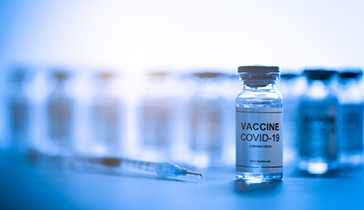
f24a.jpg)
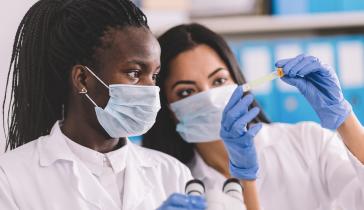
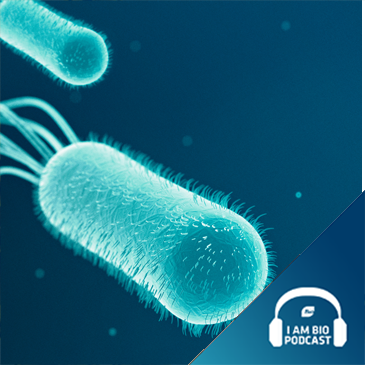
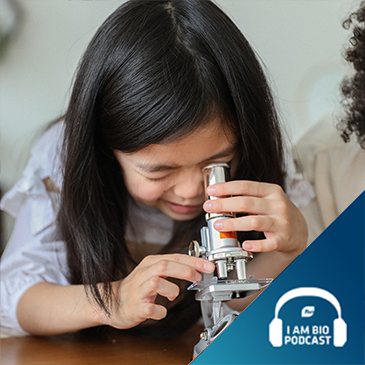

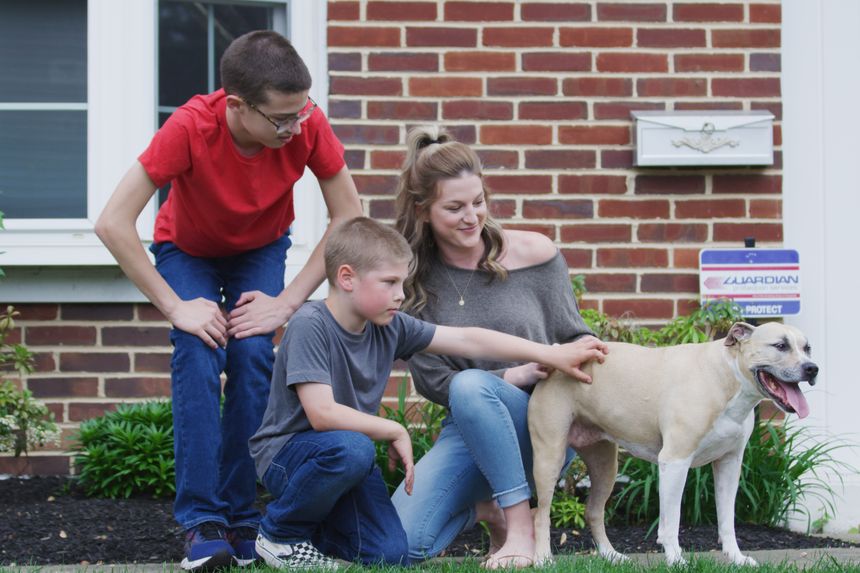
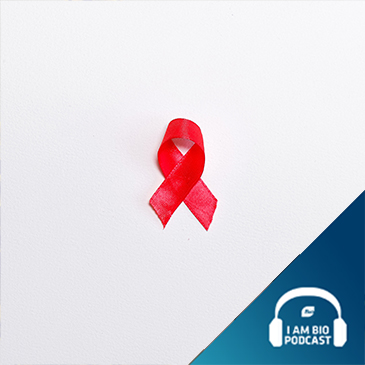
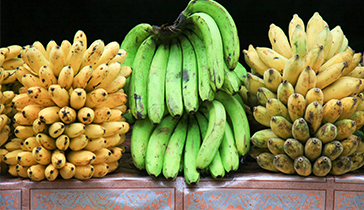
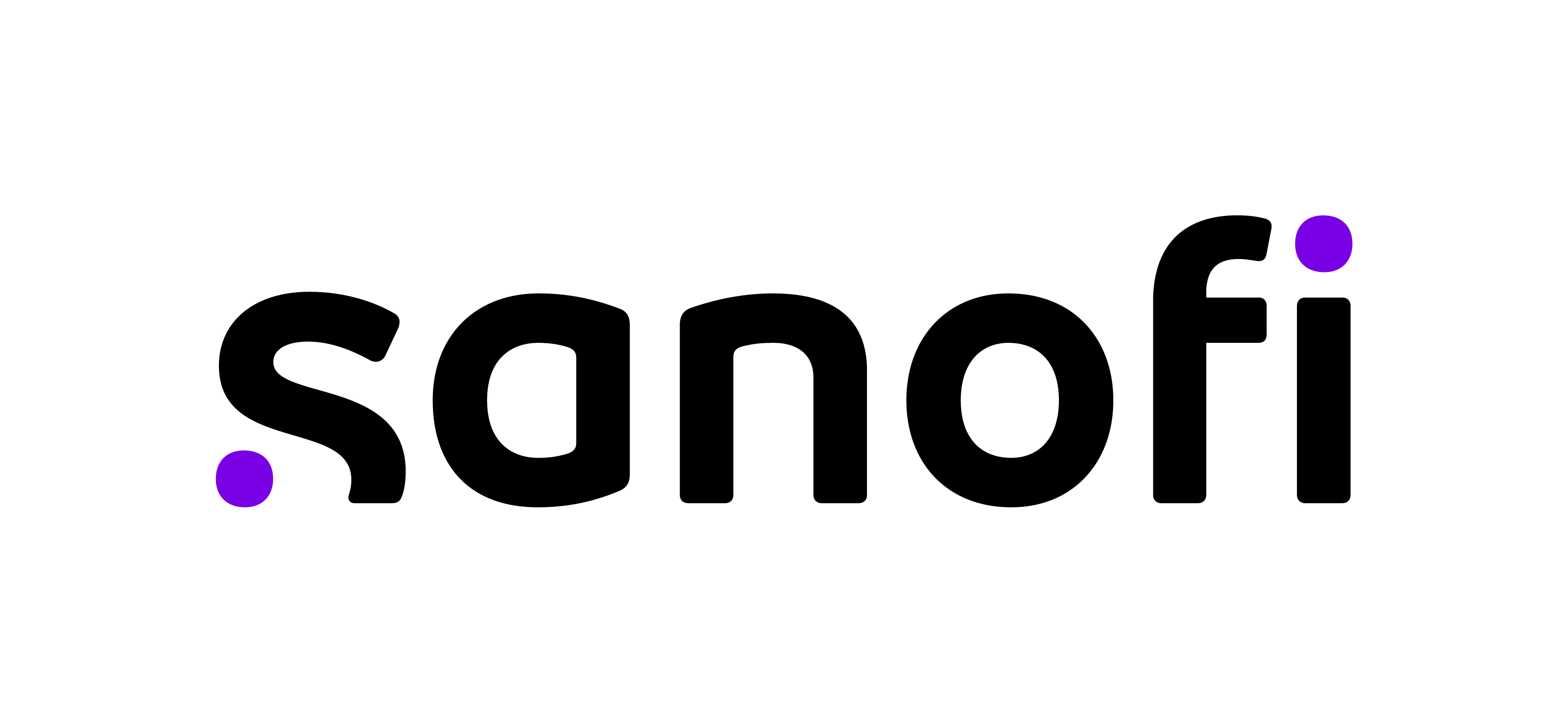
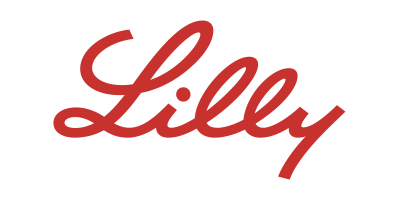



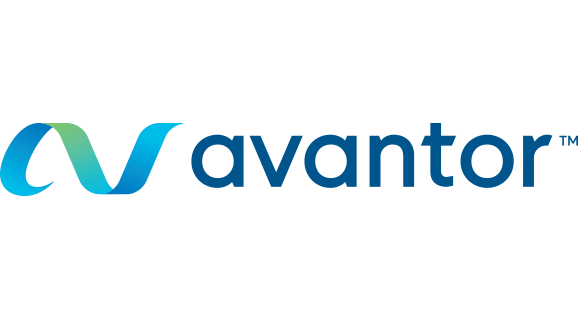

.png)


